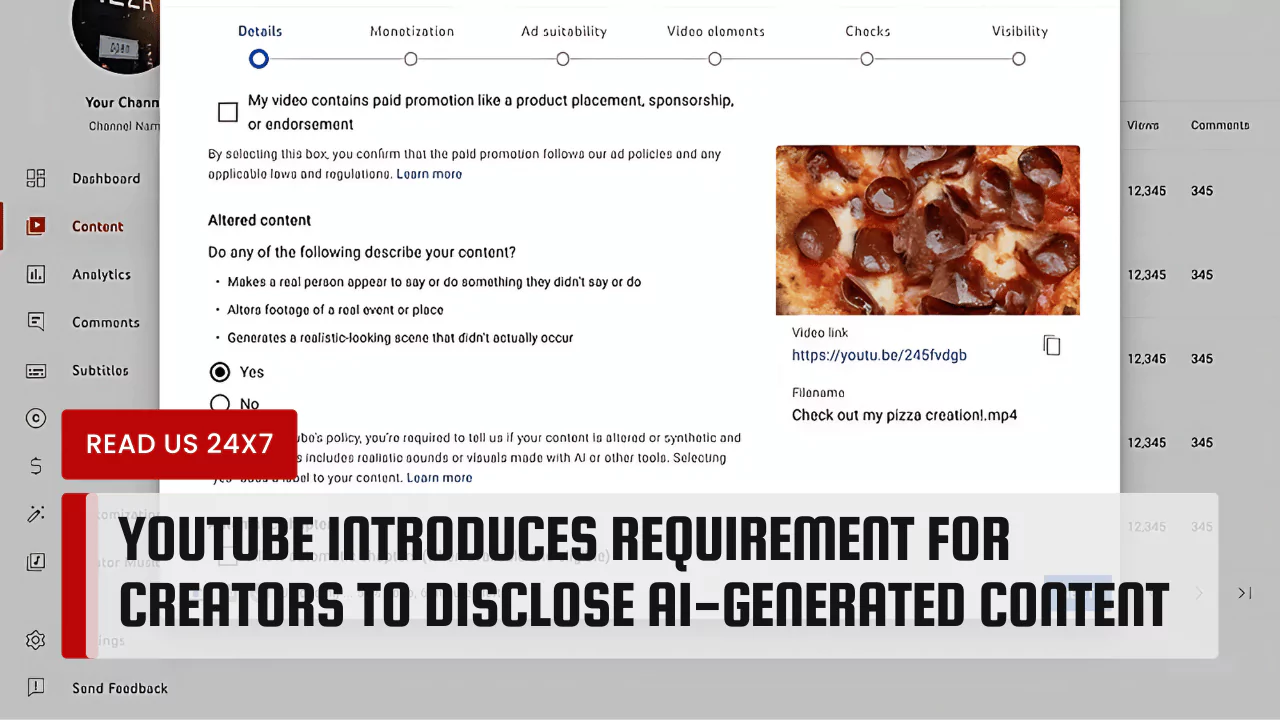YouTube has rolled out a new policy requiring creators to openly disclose if their content includes AI-generated elements. This move aims to maintain transparency and authenticity on the platform, ensuring viewers are aware when they’re watching altered or synthetic content. By enforcing this disclosure, YouTube also seeks to prevent misinformation and promote ethical practices among creators.
What is Altered or Synthetic Content on YouTube?
Altered or synthetic content refers to videos or elements within videos that have been created or significantly modified using artificial intelligence or digital tools. This can range from deepfakes, where faces or voices are swapped to appear as someone else, to entirely AI-generated animations or backgrounds. As technology advances, these alterations are becoming increasingly sophisticated, making it harder for viewers to distinguish between real and synthetic content.
How YouTube is Helping Creators Disclose Altered or Synthetic Content?
Requirement to Disclose Use of Generative AI for Productivity
Creators using generative AI tools to enhance productivity or streamline their content creation process must now disclose this usage. This includes AI-assisted editing, scripting, or any form of content generation that significantly impacts the final output. YouTube’s goal is to ensure viewers understand the extent of AI involvement in the content they consume.
Altered or Synthetic Content for Entertainment or Artistic Purposes
While AI-generated content can enhance creativity and storytelling in videos, it’s essential for creators to disclose its use, especially when altering the appearance of individuals or depicting fictional events realistically. This disclosure helps maintain trust between creators and their audiences.
Why is YouTube Requiring Disclosure?
Transparency and Authenticity for Viewers
One of the main reasons behind this new requirement is to uphold the value of transparency on the platform. By knowing when content has been altered or created using AI, viewers can make more informed judgments about what they watch. This openness fosters a more authentic relationship between creators and their audience, ensuring trust is maintained.
Preventing Misinformation and Unethical Practices
The rise of deepfakes and other forms of manipulated media poses a threat to the integrity of online content. Requiring disclosure of AI-generated content helps mitigate the spread of misinformation and unethical practices, such as using altered media to deceive or manipulate viewers.
In conclusion, YouTube’s new requirement for creators to disclose AI-generated or altered content is a step toward fostering transparency, authenticity, and integrity in online video content. By empowering viewers with information about the use of advanced technologies in video production, YouTube aims to create a safer and more trustworthy viewing experience for all.


